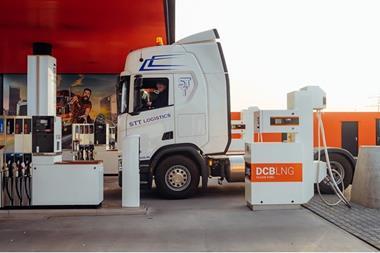
It was interesting to see a collection of senior representatives of some of the largest retail chains being ‘grilled’ (as the popular media like to call it) by a collection of MP’s from the Business & Trade Committee on the subjects of prices and inflation, particularly their alleged ‘profiteering’ in the current inflationary period – not least in the area of fuel retailing.
Members of Parliament come from a variety of backgrounds: it’s quite common to find many who studied Economics as part of their university degrees; some no doubt have post-graduate MBA’s from Business Schools lurking on their CVs. And a few of them may even be accountants – or at least claim to have some senior management experience in business that involved dealing with ‘finance’. Unfortunately, if any of the committee members fell into any of those categories, then whatever they might have ever learned about economics or accounting has been lost in the mists of time. Or political expediency.
At the most basic level, they seem to not quite understand what the word ‘retailing’ means, and what ‘retailers’ do. In simple terms ‘retailers’ buy-in a product from a producer or importer, and sell that product to consumers through their own stores. They do not, other than in a few very limited cases, themselves manufacture what they sell. Now in the real world, we know that some of the major retail chains are big enough to obtain prices from manufacturers and suppliers which are somewhat lower than those available to individual retailers – just ask any farmer, for example. But even then, there’s a limit: the suppliers have their own cost and profit calculations to consider if they want to stay in business, and there comes a point where they will say that enough is enough; there’s no point being in business supplying anything if you can’t cover your costs and make some acceptable return on the capital invested to run that business.
Then there was the repeated discussion of ‘gross margins’. As they would have been taught in their academic or professional studies, the ‘gross margin’ on a product is merely the difference between the price at which it was bought, and the price at which it was re-sold. Nothing more. That gross margin then has to cover all of the other costs of running the business (everything from staff wages, through property expenses, to bank interest) leaving a Net Profit which will be taxed. That net profit after tax itself has to be sufficient to provide a reasonable return on the capital invested in the business. If they don’t do that, eventually their owners – shareholders – will either change the management or sell the business to someone who will. It’s called Capitalism, and by-and-large it works, however imperfectly. Or at least, nobody seems to have devised an alternative that works better in the real world.
It was this concentration on ‘gross margins’ which illustrated the futility of the ‘grilling’. To concentrate on the ‘gross’ and ignore the lower half of the trading statement – ie the costs in the Profit & (Loss) account - is both pointless and misleading. Take the discussion as it related to fuel margins. The usual self-appointed ‘consumer champions’ were quoted as telling the committee that at one point earlier this year, “…average retailer margins reached 22ppl which was more than three times the long-term margin of 7p. This cannot be allowed to continue when households are having to contend with a cost of living crisis”. Nobody was going to come out and disagree in public – motherhood and apple pie, as the Americans like to say. But let’s look at that statement more closely.
Ignore whether or not fuel ‘margins’ actually reached the claimed dizzy heights of 22ppl for a short period (how short – a month, a week, one delivery?); ignore how anyone without access to real trading accounts of real retailers could know what the real margins were, and concentrate on the supposed 7ppl which was stated as if some sort of ‘norm’. If that 7ppl gross was indeed considered (by whom?) sufficient to cover the overheads, establishment and finance costs (etc) and provide a sufficient net profit to produce a reasonable return on capital – as mentioned earlier – when was that? If it was even as recently as a year ago, then it certainly wouldn’t be sufficient today.
According to the latest figures from the ONS (Office of National Statistics), “In February to April 2023, average regular pay growth for the private sector was 7.6%, this is the largest growth rate seen outside of the pandemic period…” – and that only covers three months, not the (similar) scenario for the previous nine. Or from the same source – “Overall, the price of energy goods rose by 8.1% in the year to May 2023, down from 10.5% in the year to April. The easing is a result of falls in motor fuel prices between April and May this year compared with rises in the same period last year.” Look at the detailed, monthly P&(L) accounts for any business and try and find any expense that hasn’t risen considerably over (say) the last 12 months, and you’ll be lucky to find one.
Without wishing to labour the point, unless someone has the real, detailed information about the real costs of any business, there’s little point in talking about the (presumed) ‘gross margins’ of that business – let alone a whole industry sector.
Which is not to say that the committee was somehow ‘wrong’ to venture into the territory of talking about fuel retailing; even if the only useful thing we learned from the exercise was a tacit admission by some of the supermarket operators that they have indeed quietly been raising their margins on fuel over the last couple of years. I can personally think of many hundreds of (former) petrol retailers who would have been delighted to hear that at any time over the last 40 years.
As any regular reader will know, this column couldn’t be accused of much ‘fondness’ for some of the practices of the major supermarkets over the years. Indeed, I happen to believe that there is some merit to the CMA’s latest look at the fuel retailing industry, albeit not necessarily in relation to ‘margins’; not least because of the seeming concentration of site ownership in the UK. But that’s a different issue, for another day.
As far as inflation and retailing in general are concerned, it’s quite ridiculous for any bunch of MPs to imply that (a) retailers are somehow responsible for inflation, and (b) that retailers have some magic solution to the problem. Not when ‘retailers’ have little or no control over external costs incurred by their businesses, and especially when no politician in this country can bring themselves to admit in public what they know to be one of the major reasons for the inflation rate in the UK being higher than in most other advanced economies. They’d rather aim at an easy (wrong) target and ignore the elephant in the room.
































